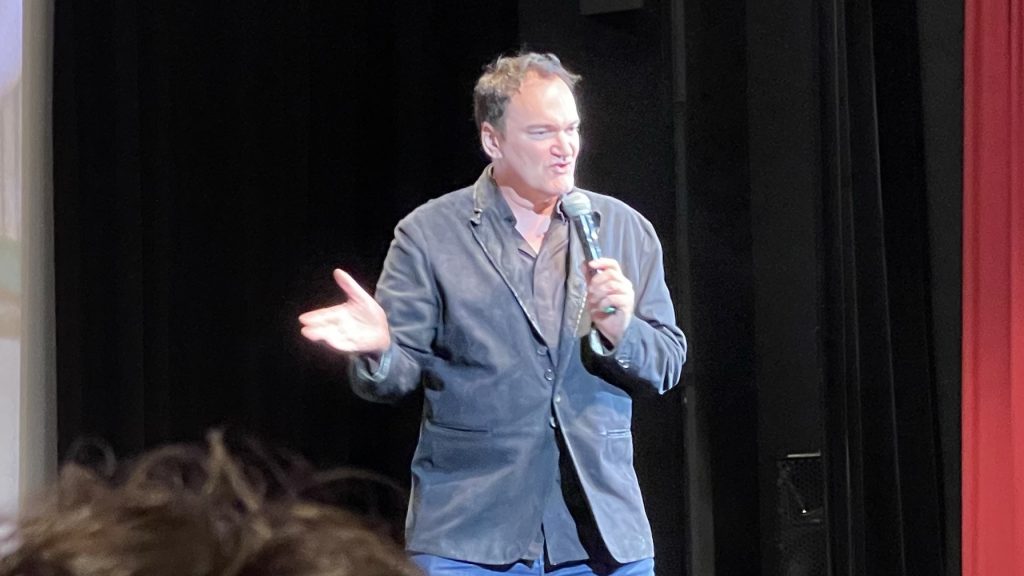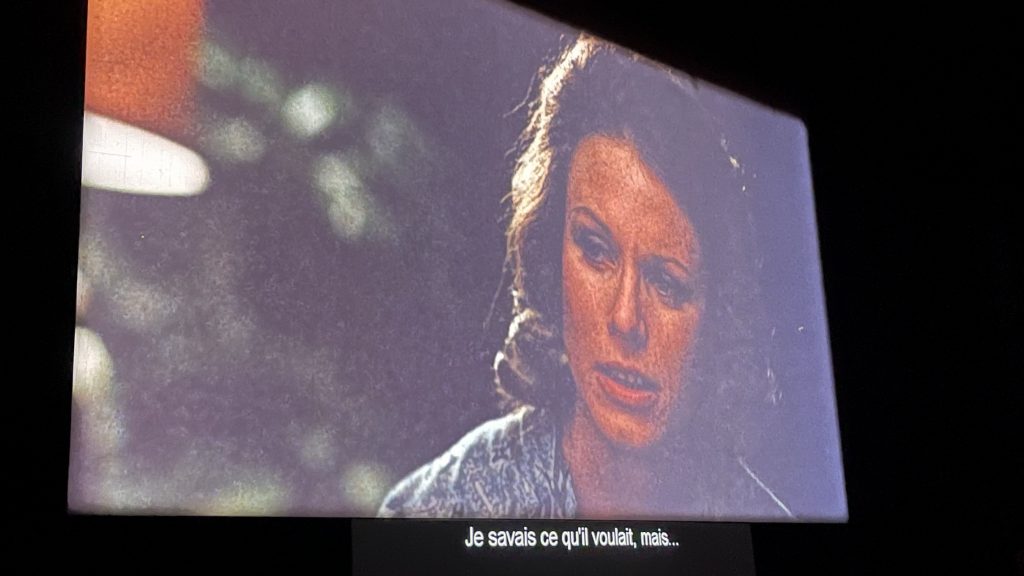I haven’t seen Disney’s half-biological, half-CG’ed Little Mermaid, but the basic impetus or social agenda has been obvious for months. Armond White explains the deal sans bullshit.
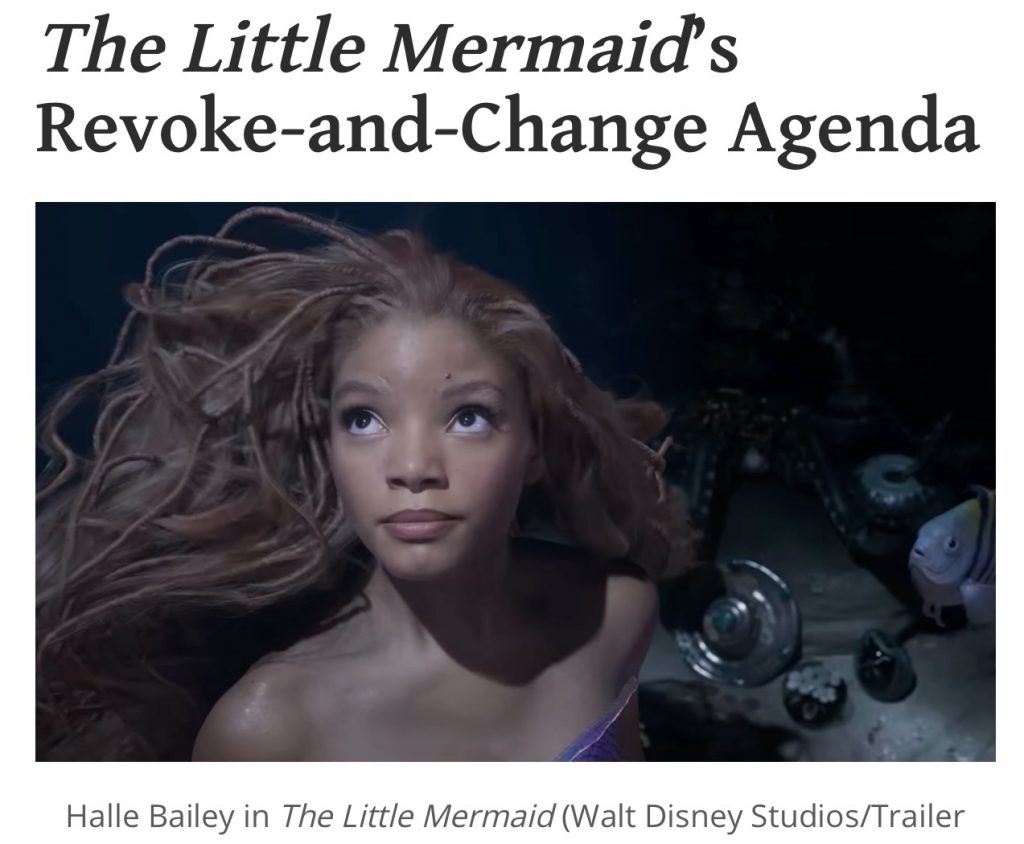

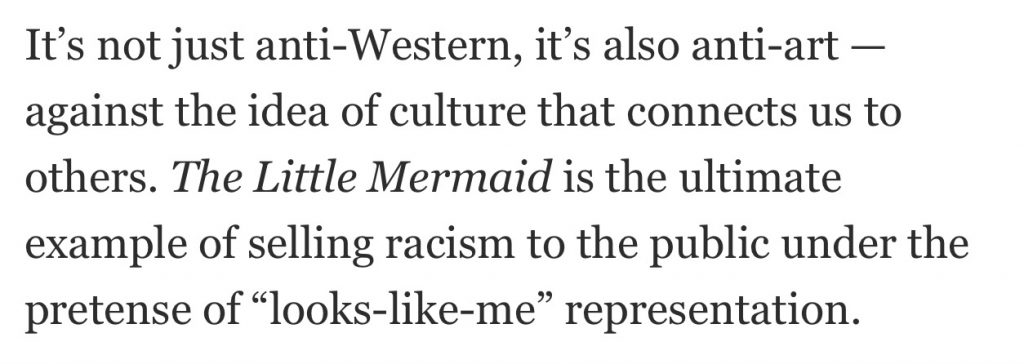
In a 5.25 assessment of the Cannes Film Festival (“At a Particularly Strong Cannes Film Festival, Women’s Desires Pull Focus“), N.Y. Times critic and gender celebrationist Manohla Dargis totally dismisses Jean-Stéphane Sauvaire’s Black Flies, calling it “ridiculous.”
Black Flies, which I approved of in a 5.19 review, is based upon Shannon Burke‘s same-titled 2008 book, an account of his own rough-and-tumble experience as a NY Fire Department paramedic.
So this Tye Sheridan-Sean Penn film is what it is, but in Dargis’s view it isn’t underwhelming or overly generic or bludgeoning. No, it’s worthy of ridicule!
HE to Dargis: Does Martin Scorsese‘s Bringing Out The Dead also qualify in this regard?
In the same article Dargis swoons over Todd Haynes‘ May December, which I found strained, clumsy and, at times, borderline infuriating.
One of May December‘s forehead-slappers is a scene in which Julianne Moore‘s Gracie Atherton, a somewhat neurotic and brittle 60something who runs a dessert-cooking business out of her Savannah home, suffers a near-hysterical meltdown because a wealthy client has cancelled a birthday cake order.
Right away you’re asking yourself “if Gracie shrieks and wails over a cancelled cake order, how would she react if, God forbid, a pet was killed or if something horrible happened to one of her children?”
Concepts of proportion and restraint don’t seem to exist in Haynes’ creative realm.
Then it hit me — a Black Flies reshoot that, once integrated, might persuade Dargis to not call it “ridiculous.”
HE to Dargis: What if the Black Flies producers add Julianne Moore to the film and give her a glorified cameo? Have Sean Penn and Tye Sheridan visit her spacious Cobble Hill apartment, having heard from a concerned neighbor that she’s shrieking and wailing and possibly in major distress. They arrive only to realize that Moore is experiencing an emotional breakdown due to a client having cancelled a birthday cake order. The client has promised to pay for the cake but Moore is nonetheless heartbroken and bawling her eyes out.
Whaddaya think, Manohla? Would this scene, if added, help to rescue Black Flies?
Hollywood has long practiced the art of conflicted moral messaging, or the pushing of lofty moral or ethical aspiration while simultaneously enticing the crowd with cheap highs and tawdry pleasures.
For decades this was Cecil B. DeMille‘s game, especially with films like Sign of the Cross and The Ten Commandments — give the peons sex, glamour and lavish spectacle while preaching somber adherence to the Old Testament gospel.
Martin Scorsese‘s The Wolf of Wall Street employed a similar strategy, revelling in Jordan Belfort‘s lifestyle of drugs, depravity and debauchery while condemning Wall Street’s culture of greed and exploitation.
I’ve never forgotten LexG saying at the time that he liked The Wolf of Wall Street “for the wrong reasons” — i.e., he’d had so much fun with the party-boy behavior that the moral message barely registered.
The latest trailer for Greta Gerwig‘s Barbie seems to be following suit. On one hand it’s clearly a satire of girly-girl shallowness and empty Coke-bottle personalities and pretty-in-pink aesthetics, but on the other hand many who will pay to see it (are we allowed to say that younger women are apparently the target audience?) will be adoring the abundant plastic materialism and smiley-face attitudes that the film is telling its audience to maybe think twice about.
Trust me, there will be millions who will love Barbie “for the wrong reasons.”
Jonathan Glazer’s The Zone of Interest is a strong, admirable, ultra-precise horror film, but it’s strictly made for film devotees and academic know-it-alls…elitists who loathe the taste of popcorn and would rather slit their wrists than experience any kind of visceral enjoyment of anything. Strictly a Cannes joint…DOA at your local multiplex.

Critic ratings of Cannes competition films rarely (or only occasionally) synch up with the preferences of juries. But if you’re willing to throw caution to the wind for the sake of spitballing, the likeliest Palme d’Or and Grand Prix winners (to be announced tomorrow night) will probably come from six films rated 2.8 or higher.
The highest rated (3.2) is Aki Kaurismaki‘s Fallen Leaves, a tragicomic love story that I wasn’t able to see. Then again HE regulars understand that I have a long record of missing Cannes prize-winner screenings. It’s almost uncanny. I have a special nose.
Todd Haynes‘ May December, which I found grating and at times infuriating, and Justine Triet‘s Anatomy of a Fall are both rated 3.
Four have 2.8 ratings — Jonathan Glazer‘s The Zone of Interest (which I respected more than admired), Wang Bing‘s Youth (which I never even thought about catching), Nuri Bilge Ceylan‘s About Dry Grasses (tried to see it, failed for reasons I’d rather not go into) and Tranh Vanh Hung‘s The Pot Au Feu (my personal favorite).
For what it’s worth the derision thrown at the traumatic and walloping Black Flies (1.3) was and is completely off the mark. Jessica Hausner‘s Club Zero, an anti-woke parable, deserves a lot more than a lousy 1.7 grade.
Juries almost always give the Palme d’Or for social-political-moral motives to prove their woke bonafides. This suggests that The Zone of Interest may take the top prize.
I’ll be flabbergasted if The Pot au Feu, easily the most nourishing and pleasurable film of the festival, wins the Palme d’Or.
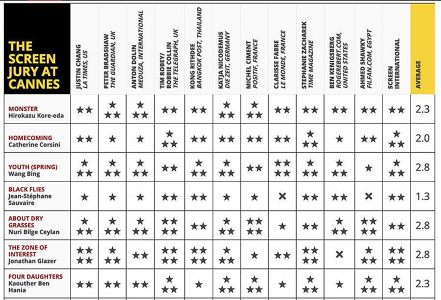

My final Cannes ’23 screening will be Alice Rohrwacher‘s La Chimera, which screens at the Grand Lumiere at 3:30 pm.
Pic costars Josh O’Connor and Isabella Rossellini. Filming began in Tuscany roughly 15 months ago. Dictionary definitions of “chimera” seem elusive: (a) “A fire-breathing female monster with a lion’s head, a goat’s body, and a serpent’s tail,” and (b) “a thing which is hoped for but is illusory or impossible to achieve.”
Packing and cleaning up this evening, and then catching a train back to Paris at 11:24 am.
And the more pearl-clutching, ashen-faced Scott Menzel types who come out of the woodwork next month, the better.
Repeating: One way or another JLaw needs to save herself from what’s been happening to her career for the last seven or eight years. No Hard Feelings might do the job. The new trailer (which isn’t the least bit offensive) can only be watched on YouTube
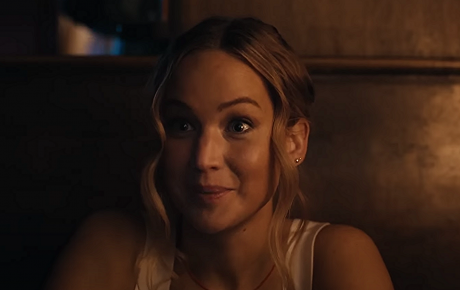
I’m sorry but I love this oldie-but-goodie — a fraught discussion between Beirut director-writer Tony Gilroy** and Washington Post wokester and representation fanatic Hannah Jewell, which was initially posted a little more than five years ago (4.18.18).
Jewell’s adamant objection (i.e., the film’s failure to include Lebanese characters is racist and Islamophobic) is fairly and thoroughly respinded to by Gilroy with three answers. One, the narrative focuses on various outsiders and invaders because Lebanon itself has long been overrun and manipulated by same. Two, there wasn’t room within a two-hour narrative to include ethnic-nativist characters and atmosphere for their own sake. And three, if a film is set in Florida should only Floridians be cast?
Jewell is a national video reporter for The Washington Post, and author of “We Need Snowflakes: In defense of the sensitive, the angry and the offended.”
I’ll wager that Jewell was dutifully outraged over the June 2022 Dave Weigel sexist tweet episode, and cheered when he was suspended.
** Obviously pre-uncredited rewrites of Woman in the Window, and pre-Andor.
…without considering the likely fact that these apparently proud fellows are, on some level, kidding.
If I were King Charles I would have at least forsaken the absurdly flamboyant black-and-gold royal cloak with the 10-foot train, not to mention the crown and scepter.
He’s obviously inviting derision. He’s obviously saying to the world “I am totally living within my own royal membrane and I don’t give a shit what others may think.”
And for the 17th or 18th time, why baldy has ignored the easy-as-pie Prague hair remedy is completely mystifying.
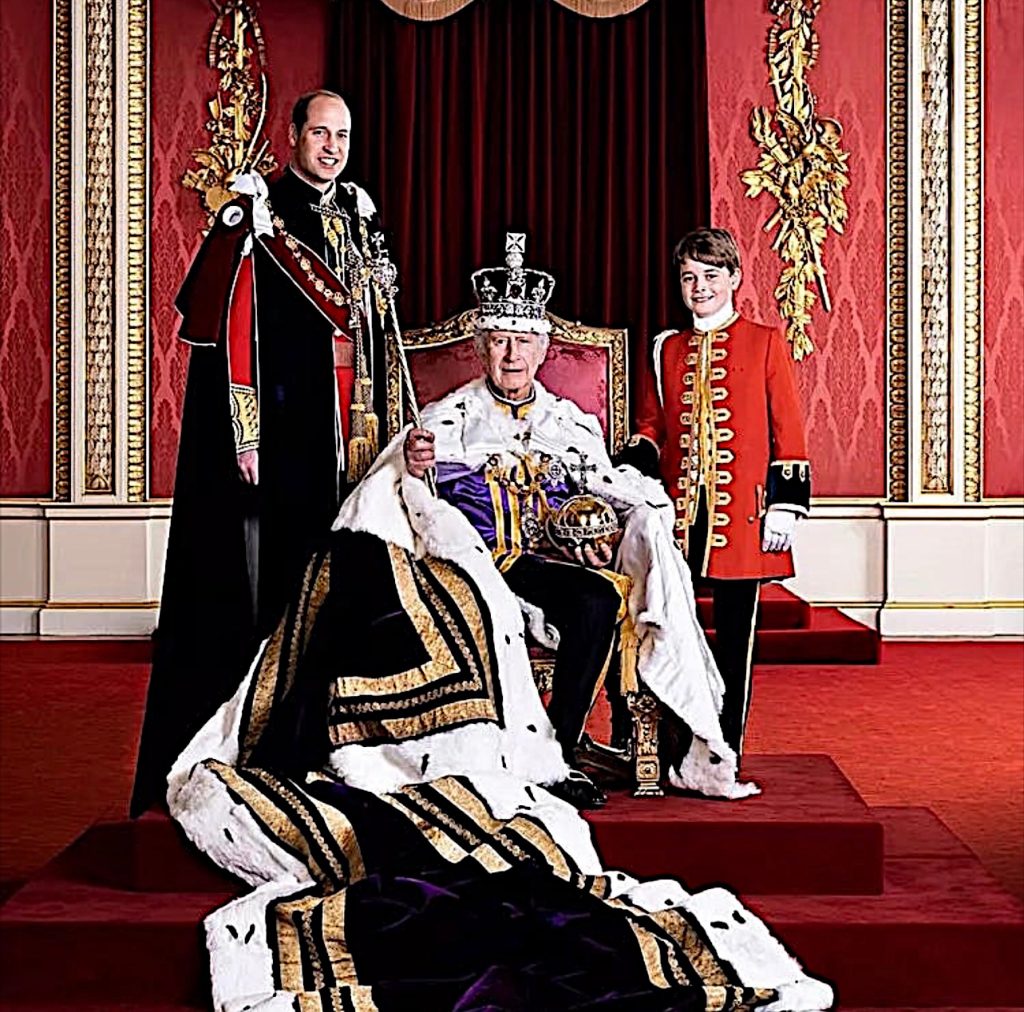
“Rendezvous with Quentin Tarantino”, a special event at Theatre Croisette (home of the Directors Fortnight program), began at 4:22 pm. QT was introduced, stepped on stage to vigorous applause, and announced that John Flynn’s Rolling Thunder (‘77) would be the secret screening — a 35mm print, he proudly announced — and that a fun discussion would follow.
The film began at 4:35, and I’m sorry but it looked and sounded like shit. A faded, half-pink print. Smothered in dirt and scratch marks during the first two or three minutes and never looking or sounding all that clean. To me the dialogue was weak and whispery and barely audible, especially with the soundtrack humming and popping and crackling.
I hadn’t seen Rolling Thunder in 45 or 46 years, and if it hadn’t been for the French subtitles (which helped here and there) I would’ve been totally lost about some of the plot particulars.
You’d expect that for an event like this Tarantino would’ve gotten hold of a decent print, or relaxed his purist 35mm aesthetic (I know…heresy!) and shown a DCP. I’m sorry but I haven’t watched a film in this kind of ghastly condition in ages. We’re all accustomed to old films being restored or upgraded these days. Rolling Thunder is streaming on Amazon Prime.
QT’s affection for this Vietnam War-era revenge film is genuine, and the last thing I want to do is rain on his parade. I was really looking forward to a Thunder session but if you can’t hear a good portion of the dialogue what’s the point?
